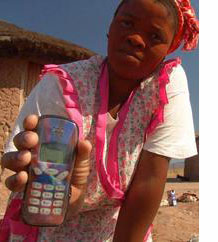Donga.com, the Korean news site on technology and the internet, has this little tidbit of an article:
21st Century's Democracy Comes From Citizens
The
democratic movement in the Middle East, the democratic revolution in
Central Asia, and China;s anti-Japanese protests. These events are
weighty incidents that have shaken the world this year. Behind all
these incidents are mobile phones and the Internet. In other
words,mobile power; and Internet power; made people power.
If the print media led a modern revolution and TV pulled down the
Berlin Wall, the thumb revolution,represented by text messages from
mobile phones and the Internet, is currently destroying the wall of a
controlled society after emerging as a new kind of political power.
Experiencing
the recent candlelight protest around Gwanghwamun organized by high
school freshmen, the rally against the impeachment of President Roh,
and the group of extremely supporters of President Roh in the 2002
presidential election, Korea is already a developed country
in terms of mobile phone demonstrations.


